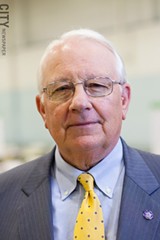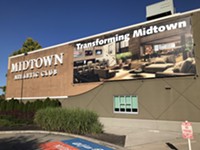[
{
"name": "500x250 Ad",
"insertPoint": "5",
"component": "15667920",
"parentWrapperClass": "",
"requiredCountToDisplay": "1"
}
]
On January 21, Barack Obama begins his second term as president. While for many Americans that milestone brings a sense of optimism and anticipation, there is also concern, growing out of a disappointment over opportunities not addressed in his first term. In this space in the weeks leading up to that milestone, three Rochesterians will address key issues that need to be on the agenda of the president and Congress.
Our guest columnists: RIT Criminal Justice Professor John Klofas, on the issues of gun control and criminal justice; Rochester Mayor Tom Richards on the needs of cities; and the Rev. Marvin McMickle, president of Colgate Rochester Crozer Divinity School, on poverty. Mary Anna Towler's Urban Journal column will return in mid-January.
Cities across America are in the midst of a sweeping transformation, and the time has arrived for the federal and state governments to play a more determined role in ensuring that these transformations are successful.
Some cities are enjoying record growth, while others are struggling with troubling decline. In Rochester, our transformation is more nuanced – neither boom nor bust – but a transformation, nonetheless.
What all cities share is a vital role in the overall success of our nation. Urban areas can no longer rise or fall in isolation, because their collective success will decide the fate of the entire country.
Before you accuse me of self-serving melodrama, consider this: According to the 2010 US Census, some 81 percent of Americans live in urban areas. That's a 12 percent growth rate from 2000, compared to less than 10 percent overall growth nationwide. And according to a study by the McKinsey Global Institute, 85 percent of the nation's Gross Domestic Product in 2010 was generated in 259 cities, including Rochester.
Cities are playing an increasingly important role in delivering services, facilities, and infrastructure that have a direct and immediate impact on citizens' quality of life and the future of the next several generations. Cities are also home to large populations living in poverty, so they provide crucial services to those with the greatest need.
They're doing all this at a time when expenses outside their control are overwhelming their ability to raise adequate revenue.
Like most cities, Rochester's primary source of income is the property tax. But this funding mechanism was created when cities were home to large factories and commercial establishments with vast inventories of real, taxable property.
Those circumstances have changed, and in New York, the change is acute. Rochester's ability to increase revenue from the property tax is limited by law and the practical inability of residents to carry a greater burden. Before we can put one book on a library shelf or one cop on a beat, the entire property-tax levy has been exhausted by the cost of pensions and the state-mandated $119.1 million payment to the City School District.
The federal government already has several proven funding mechanisms to help cities advance these goals, particularly in the areas of housing, transportation, and the environment. These are funds and grants administered by such agencies as the Departments of Housing and Urban Development, Energy and Transportation, the Army Corps of Engineers, and the Federal Emergency Management Agency.
Rochester has a proven track record of success with many of these programs. For instance, in the last six years the City has leveraged $10.5 million from HUD's HOME program to yield a total investment of $379 million (36 to 1) to build 546 new housing units and renovate 2,230 housing units in our effort to revitalize neighborhoods.
Unfortunately, programs such as HOME, the Community Development Block Grant, the Energy Efficiency and Conversation Block Grant, and many others are in a perpetual state of decline. Elected officials label these programs "discretionary spending," as if they were luxury items.
But in cities like Rochester, they are not luxuries. We have blighted properties that must be removed from neighborhoods and no longer be havens for illegal activity. We have emerging market places, like College Town and the Port of Rochester, that can generate new revenue streams. We have environmental brownfields that must be remediated and returned to the tax base. And we have highways and roads, like the Inner Loop and downtown's one-way streets, that must be reconfigured as conduits of commerce rather than barriers.
We have a transformation that is happening whether we manage it or not. President Obama and leaders of the next Congress have an opportunity to help us shape that change for the better.
They can do this by developing an urban policy that prioritizes and coordinates the activities of the many agencies that have an impact on cities. This is particularly important in a period of fiscal austerity, when budget cuts can leave us with bits and pieces of existing programs with an uncertain overall impact.
Cities are not transforming in isolation. They are changing, and America is changing with them. President Obama and the next Congress must help us direct that transformation with focused investment. They must help us provide our citizens a standard of living befitting this great nation.
Thomas S. Richards is mayor of the City of Rochester.
Speaking of...
-
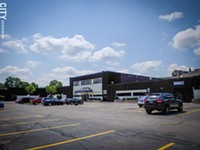
City seeks developer to lead Bull's Head effort
Jul 20, 2020 -
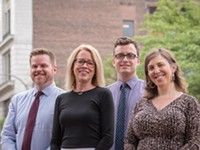
The future of Rochester in a few hundred pages
Aug 13, 2019 -
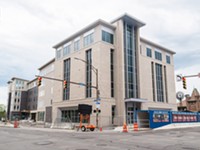
Developer Robert Morgan hit with fraud charges
May 22, 2019 - More »
